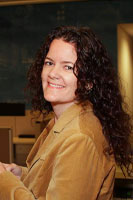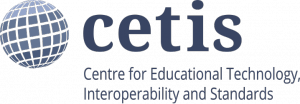It’s that time of year again, so as an antidote to post Christmas blues here is our pick of posts from 2014. Each member of Cetis has picked out a post from last year that they liked the best along with a brief explanation of why. 2014 was a busy year for Cetis, and the posts we’ve picked illustrate the variety of projects we’ve been working on. Enjoy!
Adam
On the Question of Validity in Learning Analytics
The question of validity in learning analytics is a can of worms, but one that seems to be largely hidden behind the cupboard door. I particularly like this post because of the responses it drew, including an extended “response to” piece by Timothy Harfield [http://timothyharfield.com/blog/2014/10/27/against-dumbing-down-a-response-to-adam-coopers-on-the-question-of-validity-in-learning-analytics/] . I am hoping to meet Timothy at the LAK 15 conference to debate the point: on a pragmatic level, what are the options for meaningfully engaging learning analytics stakeholders on the subject of evidence somewhere in between the banal over-simplification of “it works” and philosophy.
Brian
It’s appropriate, I feel, that the post I have chosen for my pick of the year is the one which generated much discussion on Twitter. The post, published in September, on Using Social Media to Build Your Academic Career was based on an invited plenary talk I gave at the Research and Innovation Conference 2014 at the University of Bolton. In September 2014 I was invited to give a talk at a workshop on “How to Build an Academic Career“ which was held in Brussels for the five Flemish universities. This provided an opportunity to update my slides and write a post which went into more detail than could be provided in the slides which are available on Slideshare.
The post concluded by providing a brief summary of the talk: Social media is valuable for researchers in enabling them to easily exchange ideas and engage in discussions with their peers and potential beneficiaries of their research. The evidence demonstrates the value of managed use of social media.
Christina
Cetis 14 was a real highlight of 2014 – so my choice would be:
It’s a Storify of my favourite tweets from the second day of the conference. The Cetis conference now in its 10th year was held for the first time in Bolton. Some 100 of the best thinkers in educational technology from across the UK descended on a very hot (yes hot!) Bolton in June which made for some lively sessions and keynotes. For me the closing keynote, Un-Fathom-able: The Hidden History of Ed-Tech, by Audrey Watters was a highlight of all Cetis conferences, and it will live long in the memory.
David
Haiku Learning Analytics Educational Data Mining Communities
I picked this post because it was a fun way in to starting to explore the LAK14 dataset, something which I hope to do further on the LACE project Tech Focus site. Finding Haikus was also a nice break from the daily chores.
Li
I would like pick my Cetis blog of 2014 on MOOCs and technology-enhanced learning: next steps and challenges which was based on my presentation at Westminster’s Higher Education Forum.
Despite the initial hype, MOOC’s are being used by universities to increase recruitment, widen participation and raise the brand and profile of institutions. This blog reflected some latest thinking and activities that explored the opportunities MOOCs provide for UK universities to develop their brand internationally and to expand their international market through online learning.
Lorna
Phil
My pick is On LRMI moving to Dublin Core, which represents the end of a year’s work by Lorna and me with our partners in the Learning Resource Metadata Initiative and the maturing of a specification that I have been involved with pretty much from the beginning. It also represents the start of new work on LRMI within the Dublin Core Metadata Initiative, showing that rather than being a maverick initiative, LRMI is embedded within a community of metadata experts.
Scott
I was pleased with the response I had to my post “Is there such a thing as “strategic IT” in Higher Education?“. This is a post where I analysed a paper on enterprise IT by Kwan and West, and applied their framework in the context of Higher Education. As well as the post itself – which resulted in some interesting conversations over Twitter – I also delivered a workshop at CETIS 14 using the same framework to see how colleagues elsewhere positioned their IT systems. The workshop was a big success, and several participants there have delved into the Kwan and West paper as a result. It also gave me an interesting starting set of data, and I think this is turning into a promising avenue of research. Its certainly changed the way I look at IT strategy in my work. However, one of my most popular posts this year was my more practical “How to track student blogs using Google Spreadsheets and WordPress” article. Though I suspect some of the readers were actually my students wondering what I was up to!
Simon
December’s post “How do I go about doing InLOC?” – – follows up on work done on competence frameworks from 2011 to 2013, which now seems to be gaining interest, and may even start to break through. Μy post from October, “What is there to learn about standardization?“ in contrast looks forward to what we could research and teach in a suitable academic environment, or perhaps even outside academia, in a richer future, were one to happen…












